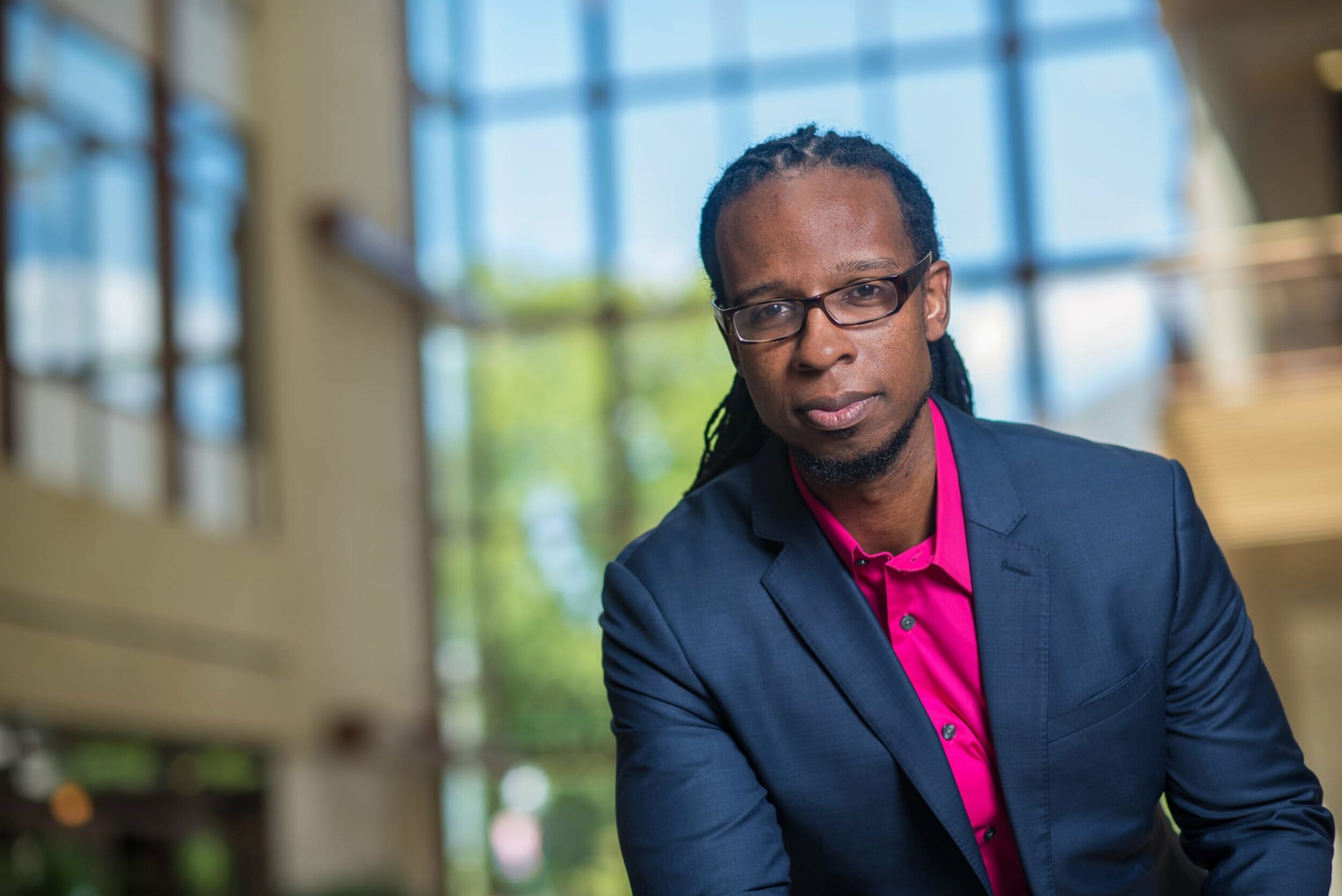
“How to Be an Antiracist” author Ibram X. Kendi
Photograph by Lorem Ipsum via Unsplash
How to Be an Antiracist—A Prescription for Healing America (Book Review)
Rev. Dr. Glenn E. Porter
October 28, 2019
“How to Be an Antiracist” is Ibram X. Kendi’s critical, contemplative, and honest prescription for healing America of “one of the fastest-spreading and most fatal cancers humanity has ever known”—racism (238).
Kendi, professor of history and international relations and the founding director of the Antiracist Research and Policy Center at American University, is author of the New York Times bestseller “Stamped from the Beginning: The Definitive History of Racist Ideas in America,” and columnist at The Atlantic. He has published essays in numerous periodicals, including The New York Times, The Guardian, Time, and The Washington Post.
He earned both masters and doctorate degrees in African American studies at Temple University, and bachelor’s degrees in African American studies and journalism at Florida A&M University. He is a millennial, raised in a Christian home, with both parents embracing a James Cone-like Black liberation theology. “Christianity was about struggle and liberation” (17).
While interspersing thought-provoking scenes from his own life story and struggles, Kendi is like a masterful griot who defines and explores racist ideas which see “people as the problem, instead of the policies that ensnare them” (8). He explains that the self-definition of “not racist” signifies neutrality but “antiracism” seeks to uncover and confront inequalities and problems in power and policies.
Like his comprehensive “Stamped from the Beginning,” the author offers a plethora of evidence to frame his thesis, including President Donald Trump. For example, he explains that the president often says, “No, no, I’m not a racist.”
And yet, Kendi goes on: “The language used by the forty-fifth president of the United States offers a clear example of how this sort of racist language and thinking works. Long before he became president, Donald Trump liked to say, ‘Laziness is a trait in Blacks.’ When he decided to run for president, his plan for making America great again: defaming Latinx immigrants as mostly criminals and rapists and demanding billions for a border wall to block them. He promised ‘a total and complete shutdown of Muslims entering the United States.’ Once he became president, he routinely called his Black critics ‘stupid.’ He claimed immigrants from Haiti ‘all have AIDS,’ while praising White supremacists as ‘very fine people’ in the summer of 2017” (8).
In 18 chapters — from his “one-boy sit-in” in third grade to a new conception of racism that was informed, in part, from a recent colon cancer diagnosis and treatment — Kendi confronts racist and antiracist views on issues like biology, ethnicity, body, class, culture, behavior, gender and sexuality. Each chapter builds upon the former, showing how racism intersects into all aspects of our lives.
The author’s concept of antiracism is a transformative and ongoing process that calls for a continual reorientation toward how we see ourselves and others.
“How to Be An Antiracist” includes steps that can be taken to eliminate racial inequity in our spaces, including: “admit racial inequity in all its intersections and manifestations. Investigate and uncover the racist policies causing racial inequity. Invent or find antiracist policy that can eliminate racial inequity…Deploy antiracist power to compel or drive from power the unsympathetic racist policymakers in order to institute the antiracist policy…When policies fail, do not blame the people. Start over and seek out new and more effective antiracist treatments until they work” (231-232).
The timeliness of this work cannot be overstated. While the author provides a sweeping historical perspective for racist ideas and policies, he also gives contemporary, real-time commentary and critique, and “how-to” solutions for being antiracist in this post-Obama, constantly “breaking news” Trump era.
There is much work to be done. The Southern Poverty Law Center has documented 1,020 active hate groups in the United States in 2018. The SPLC says there are 39 hate groups in my state of Virginia.
It requires praxis.
Dr. Martin Luther King, Jr., said so correctly in his 1963 “Letter From a Birmingham Jail” that: “Injustice anywhere is a threat to justice everywhere. We are caught in an inescapable network of mutuality, tied in a single garment of destiny. Whatever affects one directly, affects all indirectly.”
To be antiracist requires genuine self-examination, uncovering one’s own racist ideas. Kendi honestly shares his transformative journey, which includes epiphanies of his own hypocritical episodes. He dismantles the idea that “Black people can’t be racist.”
“And I’ve come to see the movement from racist to antiracist is always ongoing — it requires understanding and snubbing racism based on biology, ethnicity, body, culture, behavior, color, space, and class” (10).
Kendi concludes on a hopeful note. Just as health care professionals treat cancer, Kendi says, “We can survive metastatic racism” (237). But it requires aggressive treatment, and constant follow-up.
I highly recommend “How to Be an Antiracist” for anyone who is seriously committed to the betterment of humanity. As soon as I finished the book, I found myself buying three additional copies — one for each of our three sons, ages 23, 21 and 18. As young Black men in America, they’re constantly face-to-face with “surface-sighted eyes,” racial ideas of Blackness, and racist policies. This book is an invaluable resource for “survival and revival” (86).
The Rev. Dr. Glenn E. Porter Sr. is senior pastor at Queen Street Baptist Church, Norfolk, Va.; adjunct professor of Religious Studies at Tidewater Community College; and volunteer chaplain with the City of Norfolk Police Department. He is author of “Journey With Jesus Through Lent” (Judson Press, 2017).
Kendi, Ibram X. How to Be an Antiracist. New York: One World, an imprint of Random House, 2019.
The views expressed are those of the author and not necessarily those of American Baptist Home Mission Societies.


